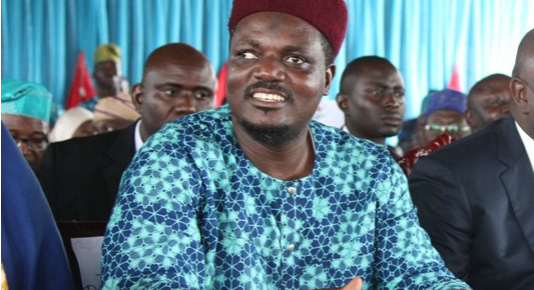Lagos denies plan to place religious leaders on salaries
The Lagos State government yesterday denied a report on the social media suggesting it was planning to commence payment of salaries to religious leaders in the state. In the said report, the Commissioner for Home Affairs, Mr Abdulateef Abdulhakeem, was quoted as saying that the state government would soon place religious leaders on the state’s […]


The Lagos State government yesterday denied a report on the social media suggesting it was planning to commence payment of salaries to religious leaders in the state.
In the said report, the Commissioner for Home Affairs, Mr Abdulateef Abdulhakeem, was quoted as saying that the state government would soon place religious leaders on the state’s pay roll to encourage them use their pulpit and the Minbar to re-orientate the citizenry to shun corruption and immorality.
But the government declared the claim was “totally untrue and misleading.”
Abdulhakeem, who clarified the issue while speaking on a television programme monitored in Lagos, said there was no iota of truth in the said report and urged members of the public to disregard it in its entirety.
Maintaining he must have been misunderstood or misquoted, the Commissioner said, “The clear position is that the Lagos State government is not intending to employ Imams and pastors. There is no such plan and there is no willingness on our part to delve into a private realm.”
He said a structured approach had been put in place to relate with religious leaders in the state through the Nigeria Inter-Religious Council (NIREC), which consists of people nominated by the Christian Association of Nigeria (CAN) and the Muslim community across the 57 local councils in the state.
“They meet regularly in the Home Affairs, and instead of leaving them as dysfunctional silos, we ensure that there is an integrated approach. They meet regularly to interact on religious issues and the Governor, Mr Akinwunmi Ambode, has even further decentralized that whereby over 700 of them were appointed based on their nominations and they are volunteers who are not paid anything. They come together to nip religious crisis in the bud,” he said.
Responding to a question on why the state government was yet to implement a Court of Appeal judgment on the use of hijab by school girls, Abdulhakeem said the state government was awaiting the pronouncement of the Supreme Court on the matter which, he said, was already before the apex court.
On taxes for religious bodies, Abdulhakeem explained, “Religious institutions are not taxable under the Lagos laws, but where religious institutions engage in business transactions like schools and so on, then such transactions are liable to tax payment.
“Also, to those who convert their buildings to mosques to avoid paying taxes, we have made it abundantly clear that you are not allowed to convert residential premises into religious centres. So people should just respect God the way the Lagos State government has respected God and should not come under that arena to avoid payment of taxes.”
